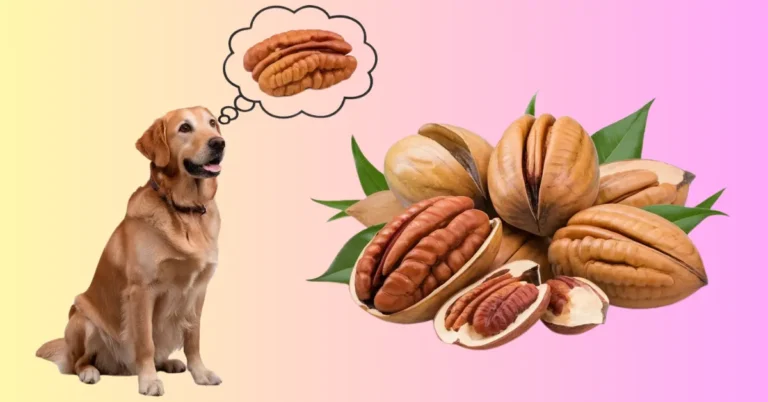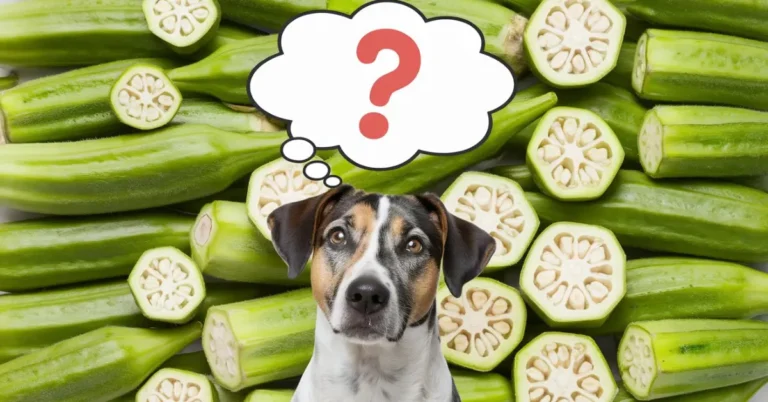Table of Contents
As a dog owner, you’re always careful about what your pet eats. But sometimes, your dog’s curiosity gets the best of them, and you might wonder, “Can dogs have cherries?” You aren’t alone! Many pet owners ask the same question because cherries seem like a healthy snack. However, the answer is more complicated than you might think. This article will take a deep dive into everything you need to know about cherries and dogs, covering all the risks, benefits, and safe alternatives.
Can Dogs Have Cherries? The Surprising Truth
So, can dogs have cherries? The short answer is no. While the flesh of a cherry is not toxic to dogs, the pits, stems, and leaves are highly dangerous. They contain cyanide, a poisonous substance that can cause serious harm to your furry friend. Even if your dog doesn’t eat the pit, cherries still pose a choking hazard and can cause gastrointestinal problems. Let’s break down the risks and explore why cherries are not a good snack for dogs.
Why Are Cherries Dangerous for Dogs?
Cherries are dangerous for dogs primarily because of their pits, stems, and leaves, all of which contain cyanogenic glycosides. These substances break down into cyanide, a deadly poison that can be fatal for dogs. When your dog ingests the pit or chews on the stem or leaves, cyanide enters their bloodstream, leading to severe health problems. So, can dogs have cherries? The answer is clearly no, given the risks involved.
What Happens If a Dog Eats Cherries?
If your dog happens to eat cherries, it’s important to monitor them closely. Common symptoms of cherry poisoning in dogs include difficulty breathing, vomiting, bright red gums, dilated pupils, and confusion. These are all signs of cyanide poisoning, and if you notice any of these symptoms, you should contact your veterinarian immediately. Even if your dog only eats the flesh of the cherry, you should be aware that the pit can cause intestinal blockages, making it crucial to ask, “Can dogs have cherries?”

How Many Cherries Can a Dog Have?
Even if you’re wondering whether dogs can have cherries in small amounts, the answer is still no. There is no safe amount of cherries that you can confidently feed your dog. The risks, including cyanide poisoning and choking, far outweigh any potential nutritional benefits. It’s better to avoid cherries altogether and opt for safer alternatives that are just as delicious and nutritious for your pet. This brings us back to the original question: can dogs have cherries? The answer remains a firm no.
The Danger of Choking on Cherry Pits
In addition to cyanide, cherry pits pose a serious choking hazard for dogs. Dogs, especially smaller breeds, can easily choke on these small, hard objects. Even if your dog manages to swallow the pit without choking, it can still cause a dangerous intestinal blockage. Blockages are painful and may require surgery to resolve. So, can dogs have cherries without the pit? Unfortunately, even without the pit, cherries still aren’t a safe option.
What Should You Do If Your Dog Eats Cherries?
If your dog accidentally eats cherries, the first thing you should do is check if they swallowed the pit. If the pit is still inside the cherry, it’s crucial to monitor your dog for any signs of distress, such as coughing or choking. If you suspect cyanide poisoning, get your dog to the vet immediately. It’s always better to err on the side of caution when it comes to your pet’s health. Even if your dog only ate the flesh of the cherry, watch out for gastrointestinal issues, as some dogs may still experience stomach upset.

Safe Alternatives to Cherries for Dogs
If your dog loves fruit, don’t worry there are plenty of safe alternatives to cherries that your dog can enjoy. Some dog-friendly fruits include apples (without seeds), blueberries, bananas, and seedless watermelon. These fruits are not only safe but also packed with vitamins and minerals that support your dog’s overall health. Instead of asking, “Can dogs have cherries?” you can focus on giving them these safe alternatives that are both delicious and healthy.
Dog-Safe Fruits and Their Nutritional Benefits
- Apples (without seeds): Apples are an excellent source of fiber and vitamin C, both of which are great for your dog’s digestive and immune systems. Just make sure to remove the seeds and core, as they can be harmful.
- Blueberries: Blueberries are packed with antioxidants, which help fight free radicals and promote brain health in dogs. They’re also a low-calorie treat, making them perfect for dogs that need to watch their weight.
- Bananas: Bananas are high in potassium and vitamins, which can help maintain your dog’s heart health. They are easy to digest and are a great choice for dogs with sensitive stomachs.
- Watermelon (seedless): Watermelon is a hydrating fruit packed with vitamins A, B6, and C. It’s a refreshing treat that’s perfect for hot days, as long as you remove the seeds and rind.
How to Prevent Dogs from Eating Dangerous Foods
To prevent your dog from eating dangerous foods like cherries, it’s essential to dog-proof your home. Keep fruits like cherries stored out of reach in high cabinets or inside the refrigerator. Make sure your dog doesn’t have access to the kitchen when you’re not around. Dogs are naturally curious and may try to sneak a taste if food is left unattended. By taking these simple precautions, you can prevent any accidents and keep your pet safe.

Introducing New Foods to Your Dog’s Diet Safely
If you want to introduce new foods into your dog’s diet, it’s essential to do so gradually. Start with a small portion and observe your dog for any allergic reactions, such as itching, hives, or stomach upset. If your dog tolerates the new food well, you can gradually increase the amount over time. However, always consult your vet before adding new foods to your dog’s diet, as some foods may interact with medications or cause health issues.
Can Dogs Have Dried or Cooked Cherries?
You might think dried or cooked cherries are safer for dogs, but that’s not the case. Dried cherries are often higher in sugar, which can lead to obesity and dental problems in dogs. Additionally, cooked cherries may still contain trace amounts of harmful compounds. So, even if you remove the pits, dried or cooked cherries are still not recommended for dogs. So, the question remains: can dogs have cherries in any form? The answer is a definitive no.
Can Dogs Have Artificially Flavored Cherry Products?
Many artificial cherry-flavored products, such as candies or cherry-flavored treats, contain ingredients that are harmful to dogs. One of the most dangerous additives is xylitol, an artificial sweetener that is toxic to dogs. Xylitol can cause a rapid release of insulin, leading to low blood sugar levels, which can be fatal. Always avoid giving your dog any artificially flavored products, especially those containing xylitol.
Why Cherry-Flavored Treats Aren’t Safe for Dogs
Cherry-flavored treats may seem harmless, but they often contain artificial ingredients and sweeteners that can be toxic to dogs. Even if the product doesn’t contain xylitol, the high sugar content can lead to obesity, diabetes, and dental issues. It’s always best to stick with treats specifically formulated for dogs, which are designed with their health and safety in mind.

How to Make Sure Your Dog Stays Safe
One of the best ways to ensure your dog’s safety is by being proactive. Familiarize yourself with foods that are harmful to dogs, and always check with your vet before introducing anything new into their diet. Keep toxic foods like cherries out of reach, and educate anyone who might be caring for your dog, such as family members or pet sitters, about which foods are safe and which are dangerous.
Conclusion
So, can dogs have cherries? The answer is a resounding no. While the flesh of a cherry isn’t inherently toxic, the pits, stems, and leaves contain dangerous compounds that can lead to cyanide poisoning, choking, or intestinal blockages. It’s always better to be safe than sorry, so avoid giving your dog cherries altogether. Stick to dog-friendly fruits like apples, blueberries, and bananas, which are just as tasty and packed with nutrients. Always consult with your vet before making any changes to your dog’s diet, and keep toxic foods well out of reach to ensure your furry friend stays happy and healthy.
FAQs
Can a small cherry hurt my dog?
Yes, even a small cherry can pose a risk due to cyanide in the pit, stem, and leaves. Choking and intestinal blockages are also possible.
What fruits should I never give my dog?
Avoid grapes, raisins, avocados, cherries, and fruits with pits or seeds. These can be toxic or harmful to dogs.
How do I know if my dog is having an allergic reaction to food?
Symptoms of an allergic reaction include itching, hives, swelling, and difficulty breathing. If you notice any of these signs, contact your vet immediately.
Are there any cherries that are safe for dogs?
No, all types of cherries fresh, dried, or cooked contain harmful compounds and should not be fed to dogs.
What should I do if my dog eats a cherry?
Monitor your dog closely for symptoms of distress and contact your veterinarian immediately if you suspect they ingested a cherry pit or if any symptoms arise.





